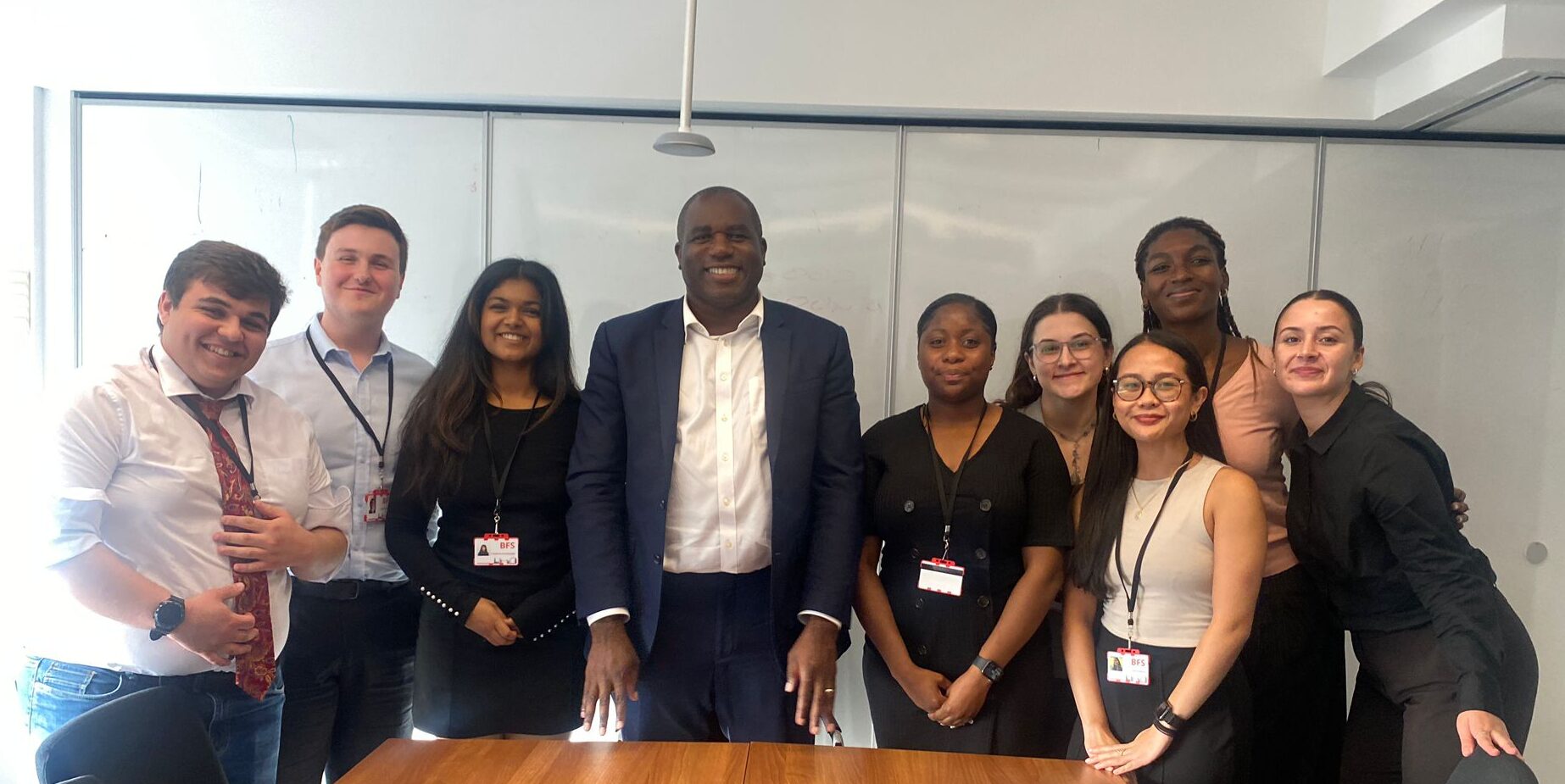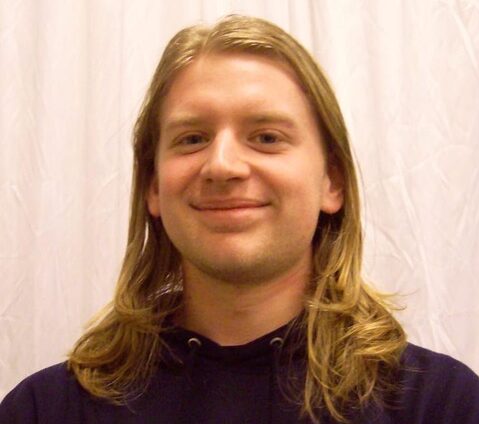”I remember how lively and engaging it was and how passionate a room full of young people were so bought into the idea of democracy changing their own and other lives for the better. Thank you, Patchwork Foundation for all the work you do, it is an honour for me to support you.”
Privilege, History & Determination. Those are three words I’d use to describe my IVLP experience in the United States of America, but to understand how I got there we’d need to back track to February 2018.
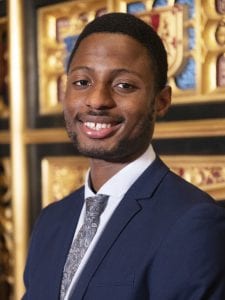 From February 2018, I have been involved with the Patchwork Foundation – a UK charity whose flagship Masterclass programme I graduated from in December 2018, aims to improve upward social mobility by giving young people from unrepresented groups a chance to learn from senior officials from the public sector, media and business through intimate masterclass sessions.
From February 2018, I have been involved with the Patchwork Foundation – a UK charity whose flagship Masterclass programme I graduated from in December 2018, aims to improve upward social mobility by giving young people from unrepresented groups a chance to learn from senior officials from the public sector, media and business through intimate masterclass sessions.
The Patchwork Foundation’s brilliant work led to a special relationship with the US Embassy in London, where bespoke masterclasses amongst other projects were collaboratively held. The IVLP is a US State Department cultural exchange programme that has been around for 80 years and allows emerging leaders to come to the USA for a tailored experience The Patchwork Foundation joined forces with the US Bureau of Educational and Cultural Affairs to create a bespoke version of the International Visitor Leadership Programme solely for selected Patchwork graduates. Through a rigorous selection process, I was fortunate to be selected and became one of 8 UK Patchwork graduates to attend the Patchwork IVLP programme from 27th July to 10th August 2019.
We had 20 professional engagements, in 14 days across 4 different cities. We were extremely privileged to learn a lot in a relatively short amount of time.
Here are 4 things I learnt from the USA cities we visited:
1) Washington D.C: The Importance of History
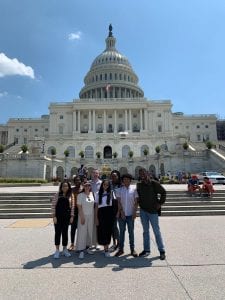
The capital city of the USA taught me the importance of history. Despite being a relatively recent ‘Western’ capital being created in 1790, it was filled with monuments and symbolism reflecting the USA’s political history. However, what most captivated me was having a tour of the 2016 completed National Museum of African American History & Culture, designed by British Ghanian architect Sir David Frank Adjaye OBE RA. The museum curated pieces from pre-colonial Africa; slavery; colonialism; emancipation; jim crow segregation; desegregation; civil rights up until Obama and more.
As an urbanist, it was particularly harrowing to see the racial housing segregation section as pictured below, with its effects still being seen as we go on to visit other cities. Despite how sad, understanding your past helps to navigate your future.
2) Baltimore (Maryland): Unpublicised Narratives of Determination
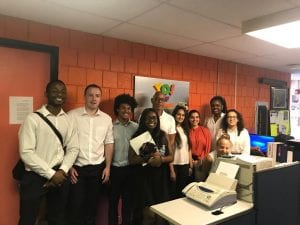
Sometimes cities reputation’s can be tainted through TV shows or negative stereotypes, Baltimore is one such city. Although it has suffered a lot of urban disinvestment and the associated effects of that, two particular NGOs stood out to me for showing a spirit of resilience. Youth Opportunity! (YO!), who engage 16 to 21 year-olds with employment programmes and Community Law in Action (CLIA) who run summer schools for young citizens. These organisations were both determined to help create an alternative narrative for young people in Baltimore.
3) Charlotte (North Carolina): The Power of Reading
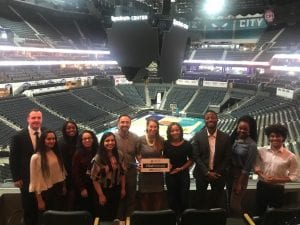
We were gifted the chance to speak to people from the NBA’s legend Michael Jordan’s basketball team’s CSR department, The Charlotte Hornet Foundation.
I loved seeing their ‘Book Bus’ that would drive to schools, along with their mascot and read to children! Dave a member of staff who helped to spear head their literary programme really emphasised the power reading has to create leaders.
4) Detroit (Michigan): Resilient Communities
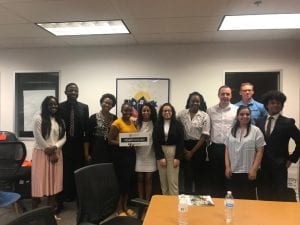
Detroit is a city that really suffered from USA racial housing segregation, such as redlining or more recently disproportionate predatory loans for black families, that the Washington African American History & Culture Museum reminded me of. Despite this past we met two NGOs that I will always remember Detroit. One was Developing K.I.D.S, a year round experiential learning scheme that develops youth ages 5-21 through academia, art, dance and sport.
The other NGO was Community Development Advocates in Detroit (CDAD) who are an NGO who build capacity for their 100 other member NGOs based in Detroit working within land use planning.Overall the USA taught me that despite inequalities, there are a large amount of people working tirelessly on the ground to improve equity for Americans.
———
Chijioke Anosike is an alumnus of the Patchwork IVLP Programme, and recently completed his MSc Regional and Urban Planning Studies at the LSE. He works part time for an urban tech start up as a researcher using qualitative and quantitative data to illustrate a picture of London areas.
———
The views, thoughts, and opinions expressed in the text belong solely to the author, and do not necessarily represent those of the Patchwork Foundation, the Alumni Network, or other group or individual.
Stay updated
Join our mailing list to stay up to date with all the latest!
Latest news
Testimonials

